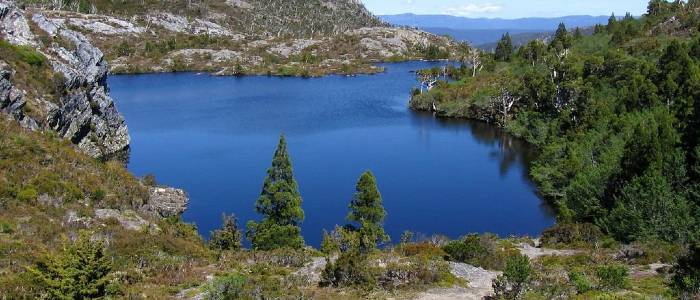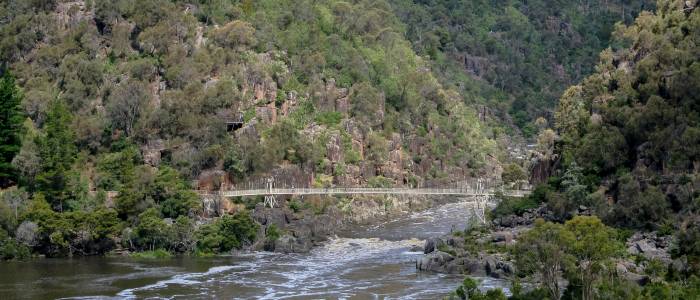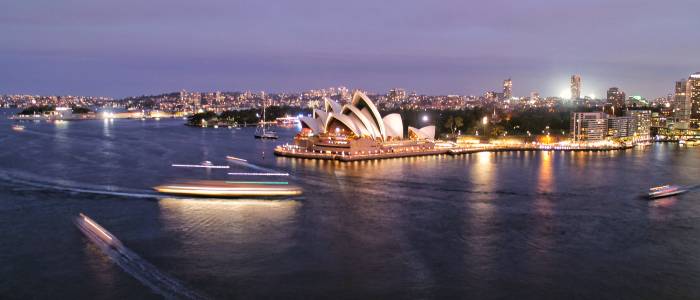
If you’re planning a trip to Tasmania, it’s essential that you know the entry requirements that apply to you. You may need certain travel documents, like an Australian visa or customs declaration.
Here we explain passport policies, visa requirements, and customs procedures to help you prepare for your trip to Tasmania.
Tasmania passport policy
It’s important to understand Tasmania’s rules on passports before entering. Check below to ensure you meet these requirements.
Do I need a passport to go to Tasmania?
If you’re entering Tasmania from another country, you must present a valid passport. This applies to all international travellers, including those from New Zealand.
Australia enforces a 6-month passport validity rule, meaning your passport should not expire within 6 months of your arrival date. For example, if your passport expires in 5 months, make sure you renew it before travelling.
You should be aware that border officials may deny entry if your passport does not meet these requirements.

Do you need a passport to go to Tasmania from Australia?
If you’re travelling domestically from mainland Australia to Tasmania, you do not need a passport, as Tasmania is part of Australia.
If you travel without a passport, you must carry a valid form of photo ID instead. Airlines commonly ask for a driver’s license, proof of age card, or state-issued ID when boarding domestic flights.
Tasmania’s visa requirements
Arriving in Tasmania is the same as arriving in Australia. You’ll clear Australian border controls at your first point of entry, whether in Sydney, Melbourne, or directly in Tasmania if you’re flying internationally.
Do I need a visa for Tasmania?
Tasmania follows Australian immigration rules, so if you’re an international traveller, you’ll need a valid Australian visa.
If you're from the European Union, UK, or select other European countries, you can apply for an eVisitor visa.
If you’re from the USA, Canada, Japan, South Korea, or a few other countries, you’re eligible for an Electronic Travel Authority (ETA).
Both the eVisitor and ETA:
- Allow stays of up to 3 months at a time.
- Must be approved before arriving in Australia.
- Are designed for tourism, business trips, or visiting friends and family.
What visa do I need to live and work in Tasmania?
If you plan to move to Tasmania to live and work, a visitor visa is not suitable. You’ll need to apply for a skilled migration visa, which allows you to work in Australia for an extended period or permanently.
Popular visa options:
- Skilled Nominated Visa (subclass 190): For skilled workers nominated by a state or territory government, including Tasmania.
- Skilled Work Regional (Provisional) Visa (subclass 491): For skilled workers willing to live and work in regional Australia, including Tasmania.
Tasmania offers state nomination for eligible skilled migrants, which helps them secure a visa. State nomination gives extra points under Australia's points-based immigration system, which improves your chances of approval.
Requirements for skilled visas often include:
- Meeting English language proficiency standards.
- Recognized occupation on Australia’s skilled occupation list.
- Providing evidence of relevant work experience or qualifications.
Tasmania customs procedures
Tasmania follows Australian national customs regulations. Here’s what you should consider:
- Duty-free allowances apply for alcohol, tobacco, and gifts when arriving from outside Australia.
- Firearms, weapons, and ammunition require special permits.
- Illegal drugs are strictly prohibited.
- Animal products, including feathers, skins, and shells, may be restricted or banned.
- Personal medication should be accompanied by a prescription or doctor’s letter, especially for controlled substances.
Tasmania also inspects camping gear, footwear, and sporting equipment for soil contamination. Inspections ensure no soil or plant material threatens Tasmania’s biosecurity.
If in doubt about any item, always declare it on your Incoming Passenger Card.
What food can I take to Tasmania?
Tasmania has strict biosecurity laws to protect its unique environment and agriculture.
You’re allowed to bring some processed and packaged foods into Tasmania, such as:
- Canned food
- Chocolate bars
- Sealed biscuits or crackers
- Dairy products (from within Australia only)
All food items must be declared upon arrival, even if they’re allowed. This helps biosecurity officers inspect and approve them, reducing the risk of introducing pests or diseases.
Failure to declare food items could result in fines.
What food can't you take to Tasmania?
Strict bans apply to high-risk items, including:
- Fresh fruits and vegetables
- Honey, beeswax, and other bee products
- Plants, plant cuttings, seeds, and bulbs
- Soil or items contaminated with soil
- Nuts and seeds for planting
These items can introduce pests and diseases harmful to Tasmania’s industries. Attempting to bring banned items without declaring them may result in confiscation or penalties.


